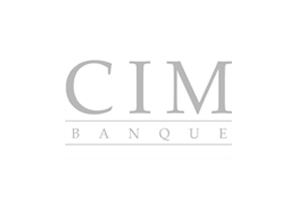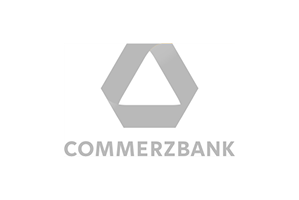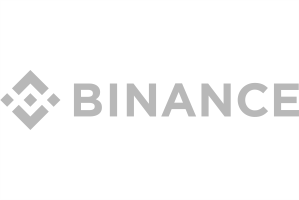For all potential holders of a Germany Electronic Money Institution License, you need to pay attention to the process regulated by banking law, which requires the approval of the Federal Financial Supervisory Authority. In addition, there are strict anti-money laundering criteria that e-money providers must comply with.
The Law on Supervision of Payment Services regulates electronic money, which is defined as value stored electronically, issued with funds for payment transactions, and accepted by third parties.
Germany E-Money Institution License Regulatory Overview
A prerequisite for carrying out payment-related activities is obtaining a German electronic money institution license (Germany AEMI License) or an authorized payment institution license (Germany API License). With such a license, issuing debit cards, making money transfers, providing merchant services, or managing electronic and prepaid wallets in Germany is possible. The Federal Financial Supervisory Authority (BaFin) oversees financial services regulation in Germany and approves the application.
Germany E-Money Institution License Requirements
- Application to BaFin is necessary for operations.
- Services covered include debit card issuance, money transfer, merchant services, and electronic/prepaid wallets.
PSD2 Impact on Payment Services
The Payment Service Directive 2 (PSD2), effective from 13 January 2018, governs the regulatory framework.
Objectives of PSD2
- Enhance integration and efficiency in the European payments market.
- Promote a level playing field for all payment service providers.
- Ensure payment safety and security.
- Increase consumer protection.
BaFin Regulation
Oversees entities providing consumer credit, payment services, e-money, lending, insurance, and investment services under the Payment Services Supervision Act (ZAG).
Issuance of electronic money services in Germany requires an Authorized Electronic Money Institution license from BaFin.
Application Prerequisites
- Applicants must comply with BaFin’s conditions, including having management and directors in Germany.
- Demonstrating sufficient resources, financial capability, staff, management, and operational systems is crucial.
- Before approving, BaFin evaluates business plans, risk assessments, budgets, resources, systems, controls, and personnel competencies.
Germany EMI License Essential Services
With a payment institution license in Germany, companies can offer various payment services in the European
Economic Area. The country also provides an additional license with affordable conditions.
Services Provided with a Payment Institution License
Payment Accounts
Debit and payment cards enable cash deposits, withdrawals, transactions for goods and services, direct debits, standing orders, and fund transfers.
Merchant Services
License holders can offer services like acting as master merchants and enabling other merchants to accept card payments.
Money Remittance
This service facilitates cross-border and international money transfers.
Payment Initiation Services
With user consent, a provider can initiate payments directly from the user’s bank to the merchant’s bank, bypassing traditional networks like Visa and Mastercard.
Account Information Services
Providers can offer users access to and consolidate their account information with consent.
Understanding Electronic Money
Electronic money (e-money) is a monetary value stored electronically or magnetically following Directive 2009/110/EC. This value is issued when funds are received for payment transactions and accepted by parties other than the issuer. Prepaid cards and e-wallets are typical forms of electronic money.
EMI License in Germany and PSP License in Nigeria
When obtaining a BaFin license, you must meticulously document business operations, including customer protection, risk management, and anti-money laundering policies. You must also prove compliance with regulatory requirements, financial stability, operational capacity, and IT infrastructure. The application also includes information about the company, operational strategies, financial integrity, and specific capital requirements (350,000 euros for the EMI license).
On the other hand, a Nigeria PSP license requires choosing a company name, establishing a registered office, and setting up share capital following the requirements of the Central Bank of Nigeria. Articles of incorporation, financial statements, a detailed business plan, and information about the director are also prerequisites. In addition, capital requirements differ depending on the license subtype. The necessary documents on comprehensive risk management, data security policy, and tax compliance must be prepared.
Application for a Germany EMI License
Securing a Germany E-Money Institution License necessitates a comprehensive application that includes specific documentation and adherence to regulatory standards. This process ensures that your operations are secure, compliant, and prepared to handle the complexities of electronic money services.
Application Essentials
Documentation and Policies
- Business strategy, including safeguarding client funds.
- Governance, risk management frameworks.
- Protocols for security incidents and customer complaints.
- Anti-financial crime measures, precisely AML policies.
Regulatory Compliance
- Proof of meeting basic regulatory requirements, such as local staffing in Germany.
- Evidence of financial, managerial, and operational capability.
Technological Readiness
Detailed description of IT infrastructure, both primary and supportive.
Detailed Application Components
Company Profile
Identification and organizational structure.
Operational Strategy
Operational plan, business plan, and financial projections.
Financial and Operational Integrity
- Initial capital evidence.
- User fund safeguarding measures.
Governance and Compliance
- Compliance, governance frameworks, and internal controls.
- Strategies for managing security incidents and customer feedback.
Data Security and Management
- Data handling and privacy measures.
- Business continuity planning.
Performance and Security
- Statistical data collection principles on performance and fraud.
- Security policy documentation.
AML and CTF Compliance
Anti-money laundering and counter-terrorist financing controls.
Ownership and Partnerships
Information on shareholders and outsourcing arrangements.
Initial Capital Requirements
- Authorized Electronic Money Institution: €350,000.
- Authorized Payment Institution:
- Payment accounts (e.g., debit cards): €125,000.
- Merchant acquiring/payment processing: €125,000.
- Money remittance: €20,000.
EEA Market Access with the Germany Payment License
In addition to being allowed to operate in Germany, obtaining an E-money license in Germany will enable companies to extend their services to the entire European Economic Area (EEA). There is no need to obtain separate licenses in each country. This process, known as passporting, makes it much easier to expand payment and e-money services within the EEA.
Passporting Essentials
Eligibility
Exclusive to regulated financial entities like authorized payment and electronic money institutions.
Limitations
Not applicable to local-level or smaller entities, such as small electronic money institutions or small payment institutions.
Operational Freedom
Establish branches or offer cross-border services/advice in EEA states.
EEA States
Includes Austria, Belgium, Bulgaria, and 27 other countries, facilitating widespread service provision without additional national licenses.
Application Process
Requires applying for a passport to utilize these privileges.
License Acquisition Timeline
BaFin aims to decide within three months of receiving a complete application, though typically, it takes 4-5 months.
Fees
Securing an EMI license in Germany incurs initial authorization and annual regulatory supervision costs.
Initial Authorization Fees
- Single payment service or account information service registration: EUR 6,150.
- Multiple or all payment services authorization: EUR 8,515.
Annual Supervision Fees
Determined by the institution’s total assets and payable to the Deutsche Bundesbank and BaFin.
FAQ
What does PSD2 mean for payment and e-money services in Germany?
PSD2, the Second Payment Services Directive, enhances consumer protection, encourages innovation, and ensures secure payments across the EU. Since January 13, 2018, financial entities, including e-money and payment services, must adhere to standardized practices, facilitating a more integrated European payments market.
Who oversees e-money and payment services regulation in Germany?
The Federal Financial Supervisory Authority (BaFin) regulates e-money and payment services under the Payment Services Supervision Act (ZAG). Entities aiming to offer services like prepaid cards or electronic wallets need an Authorised Electronic Money Institution license from BaFin, meeting its comprehensive criteria.
What services are allowed under the Authorised Payment Institution license?
An Authorised Germany Payment Institution License permits various services, including payment account management, merchant services, money remittance, payment initiation, and account information services. This facilitates broad operations within the European Economic Area (EEA) under PSD2.
What are the initial capital requirements for e-money and payment licenses in Germany?
An Authorised Germany EMI License requires a minimum initial capital of €350,000. For Authorised Payment Institutions, the needed capital is €125,000 for payment account and merchant services and €20,000 for money remittance.








